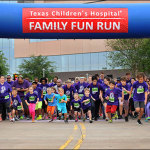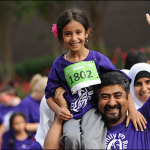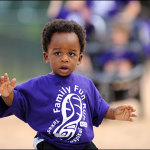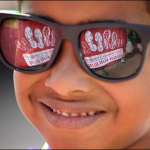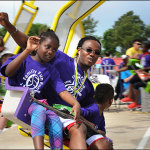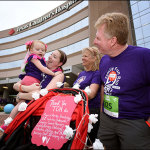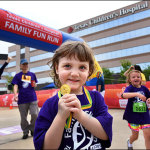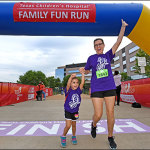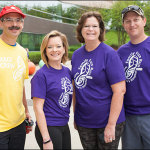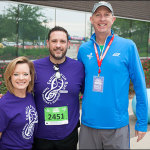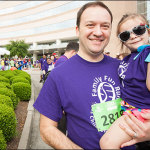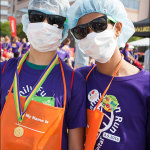 The NFL Draft is this week, and pre-season games only a few months away. So football season is right around the corner, and Texas Children’s wants to help you gear up for it.
The NFL Draft is this week, and pre-season games only a few months away. So football season is right around the corner, and Texas Children’s wants to help you gear up for it.
Over the next two weeks, all Texas Children’s employees will have the chance to be selected to attend an exclusive autograph and photograph session with two Houston Texans players: Charles James II, the Texans cornerback who rose to a fan favorite in last season’s Hard Knocks on HBO; and Devon Still, defensive end and recipient of the Jimmy V Perseverance Award for his daughter, Leah’s, courageous fight against cancer. Two Texans cheerleaders also will be in attendance.
To win a chance to attend the event, you must submit your definition of leadership. As you know, Mark Wallace’s Leadership Maxim no. 4 is that “We all should have our personal definition of leadership.”
We will use the leadership definition submissions to randomly select participants for the Houston Texans autograph/photograph session. We also will share some of the leadership definitions on Mr. Wallace’s On the Mark blog.
Submissions will be accepted here until Tuesday, May 3. We will select 400 people from the submissions to attend the autograph and photograph session. Those selected will be contacted by Wednesday, May 11.
Transportation to and from the stadium will not be provided, and only employees can attend. Exempt employees who are scheduled to work that day must obtain leader approval. Non-exempt employees who are scheduled to work that day must obtain leader approval and badge in and out.
“We hope everyone will take advantage of this opportunity to meet two Houston Texans players and learn more about our partnership with Houston’s hometown football team,” said Lisa Yelenick, director of Service Line, Community and Brand for the Marketing and Public Relations Department. “Good luck and Go Texans!”
Texas Children’s entered a partnership with the Houston Texans more than a year ago to inspire children to lead healthier, more active lives. The two organizations have since reached thousands of Houston-area children through camps, school programs, special hospital appearances and other events that combine fun with education.
The partnership also includes involvement from players, cheerleaders and TORO in the community and at hospital events hosted by the Texans and Texas Children’s Hospital. Texas Children’s and the Houston Texans will continue identifying ways to grow the partnership and extend its reach even further within the local and regional communities.
To learn more about the partnership, go to texaschildrens.org/texans. For questions about the event, contact Kimberly Vetter at mkvetter@texaschildrens.org.




